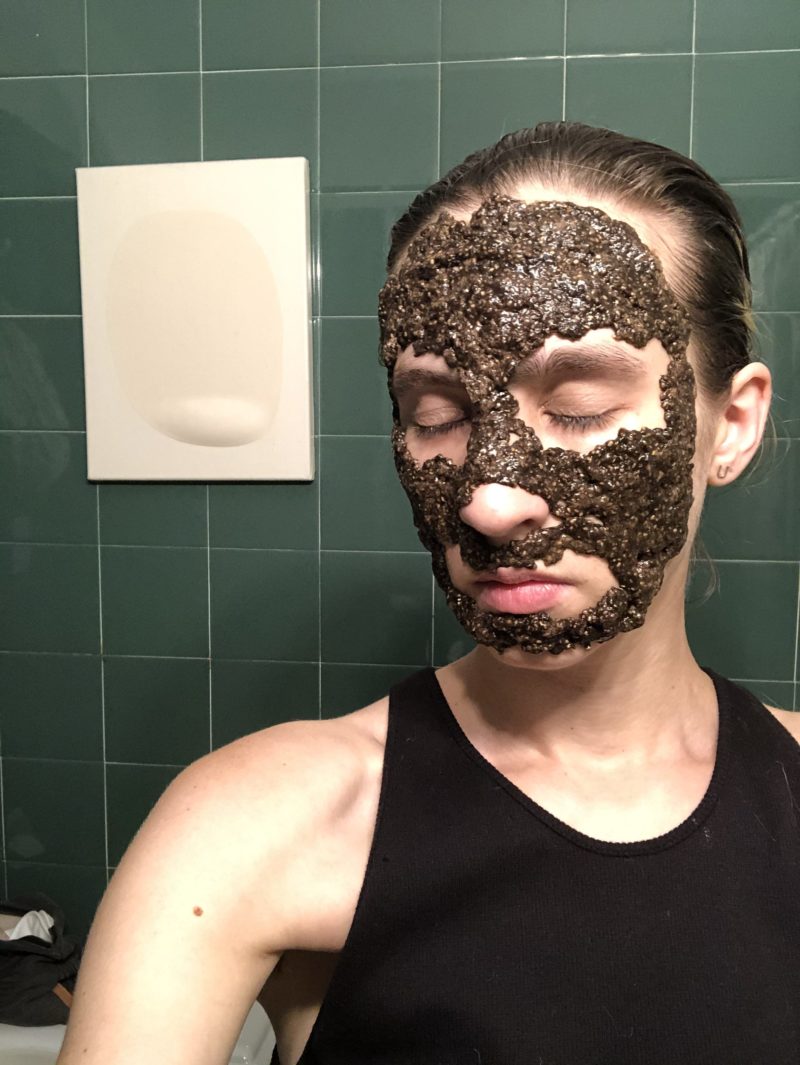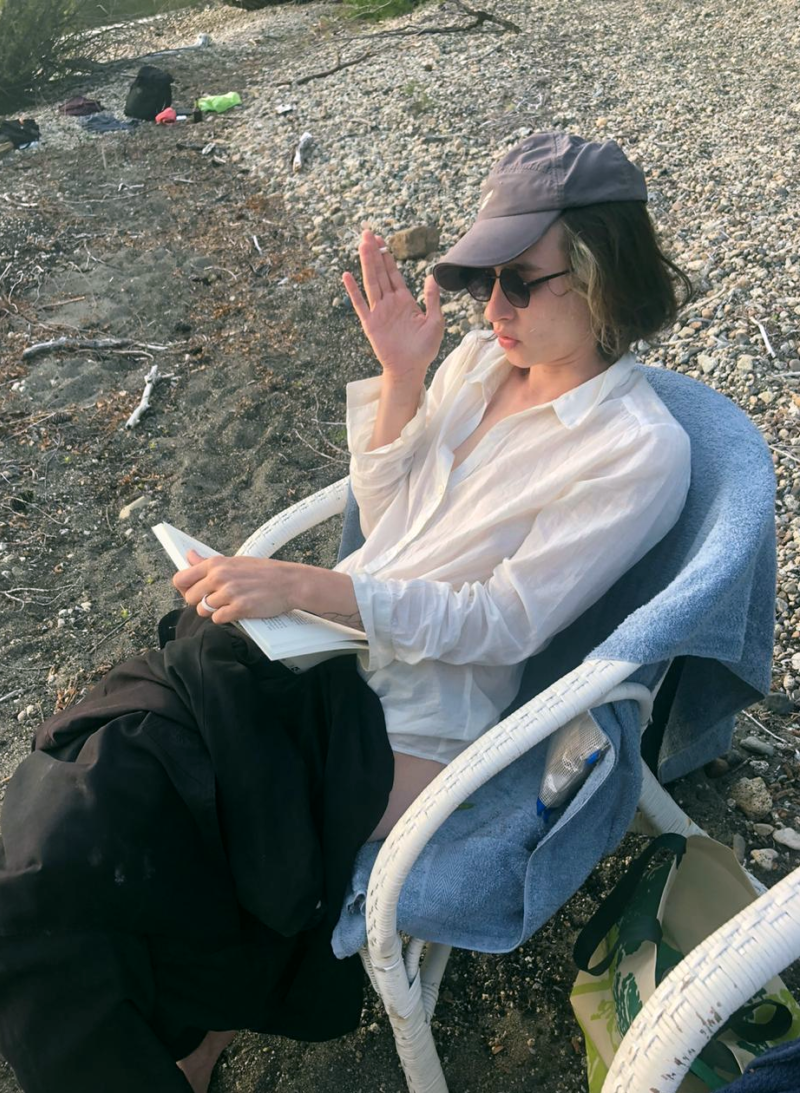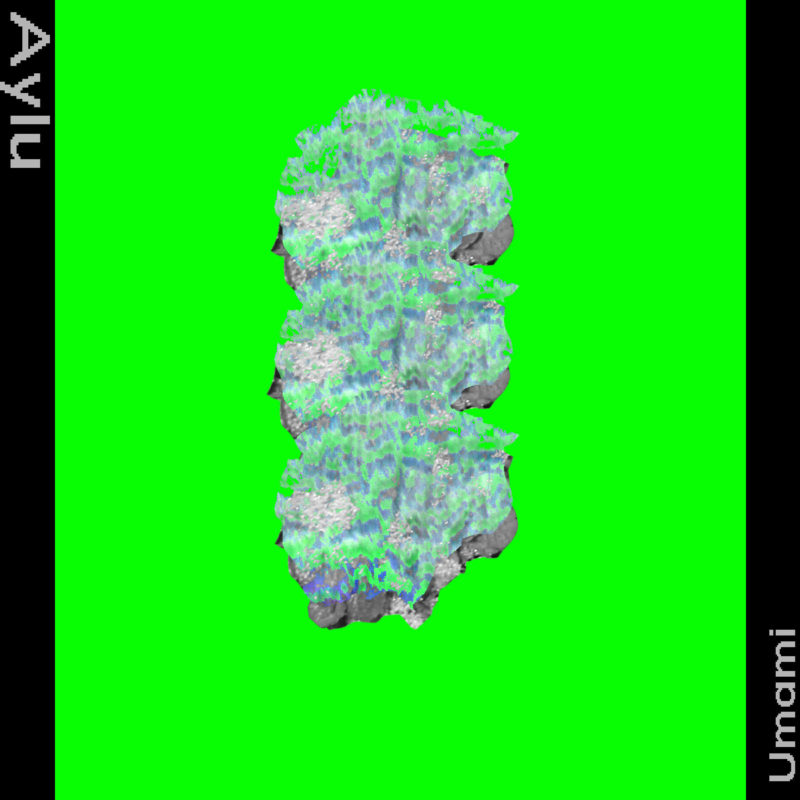On Virtual Fictions: Aylu

Dries Robbe
For Google, you’re quite an enigma. Can you tell us something about your background?
Ailin Grad
I started playing classical guitar at the age of 12. Some years later I received an electric guitar as a birthday present and started looping my guitar lines; it was one of the most incredible discoveries in my life. Subsequently I began to record my compositions, added a keyboard to my setup and played them live. When I began my degree in electro acoustic music – which I’m about to finish – I became interested in electronic (not dance!) and electroacoustic music, which led to making music with my computer. By getting a Zoom recorder, I realized I could record and sample everything that surrounded me, which was another important discovery. Since then, I’ve been mainly working with samples, either recorded by me or downloaded from sample packs of video games or artists I like (like Foodman, for example). I don’t use a lot of synthesizers and prefer concrete sounds, using them in the way Pierre Schaeffer did. DR
DR
Looking at your discography, you seem pretty prolific. How do you start working on new material and what does the process look like?
AG
It depends on how I’m feeling and what the music is for. When I met Cameron from Sun Ark Records, he opened an Ableton session, showed me some things he does, and ultimately asked me to release on his label. I felt really inspired by the way he makes music and started composing with all that useful information. For my release on Orange Milk Records, on the other hand, I was experimenting with raw materials: wood, metal, paper, and then decided to use all the wood samples in one song, wood in another, and so on. I think I made the whole album in a week so I wouldn’t have the time to listen to it too much and reach the point where I being thinking it’s not good – it’s something that usually happens to me.
DR
To me, the earlier releases in your career have a more classic footwork or IDM feel, while your later releases sound more abstract and subtle. How come?
AG
Ten years ago, I listened to Foodman a lot. Back then, I was really fascinated by his music and even had an email conversation with him. Some years later, I discovered DJ Rashad and other footwork music, realizing that Foodman was also making footwork, but in a very weird and crazy way. So I started making footwork, which I mainly liked because of the ways you can experiment with certain elements of the genre. I felt I could almost do anything in footwork. When my footwork obsession tempered a bit, I began to listen to other music and changed the feelings I wanted to transmit in my music.
DR
Regarding these feelings: the liner notes of the Groove 4 record, released on the Outlines label, state the surprising combinations, witty humor and phantasmagoria in your music. What do you want to express in your music?
AG
I always hated the term “humorous” for my music (Laughs). But I know it has some humorous elements in it, and I’m totally ok with it. Music, and art in general, has the power be interpreted in infinite ways, which is pure magic. As a creator, you cannot control this. I like the temporal nature of music, being something that develops over time, which makes it different from a photograph or a painting. You can step into a narrative in a fictional world, not because it tells a story per se – I am not telling a concrete story in my music – but as a space you can enter and navigate. I like creating virtual, fictional worlds.
DR
How does that make you different from a movie director?
AG
The narrative I’m presenting is not something I’ve thought about prior to the moment I’m creating it. I don’t have a fixed idea in mind when I start making music. The only time I did it that way was for the yearly Japanese Atomic Bomb Compilation series, a project that deals with “the tragedy caused by abuse of nuclear energy” and is released in honor to the victims of the atomic bombs. For that occasion, I made my composition based on that idea and included sounds that listeners can interpret as something relating to bombs. But as I said, the process is usually more abstract. Listeners have the freedom to create their own world within my music. I can express a particular feeling, but they can feel something totally different: this way you can create infinite new worlds.
DR
Your Casa EP and your album on Orange Milk Records both have a very (post-)internet feel and aesthetic to them. Is this music mainly alive on the internet?
AG
Of course. I like the fact that, by using Bandcamp and Soundcloud, I can closely see how different styles of music merge and continuously inspire each other. On the Internet, everything happens really fast, and this phenomenon defines the way we perceive and consume art. I have that in mind when I’m making music.
DR
Is there a local scene for electronic music in Argentina?
AG
Yes, there is. There are several collectives: one of them is the activist and political HiedraH collective that mixes Latin American music with electronic sounds, and which uses nightlife as an act of protest against regulations and oppression. But there are also a lot of artists like me who don’t have a clear identity and are experimenting a lot. And then there’s quite a big dance and a more house-oriented scene, so you have a bit of everything, which is really cool. We all get along even though we make very different music, which is something really beautiful.
DR
And in what way does living in Argentina have an influence on your musical output?
AG
I don’t have this Latin American identity that a lot of local musicians have. That is of course not because I’m against it – I like Argentinean music a lot. I’m just influenced by musicians from all over the world, and have never incorporated specific elements of it into my own productions. I even used to run a label called Mainumby, on which I released different styles of music from all over the country, such as the first two albums of Los Siquicos Litoraleños whose sound is rooted in Argentinean folk music. When I was growing up, we never had the chance to see non-commercial bands, or any bands that we liked, play live, so we had to make a scene ourselves. It’s something that played an important role in the way I grew up making music.

Aylu will treat us to one of her hallucinogenic sets on her first-ever Eurotrip at KRAAK Festival 2020. She will play Saturday 29.02 - tickets available here!
